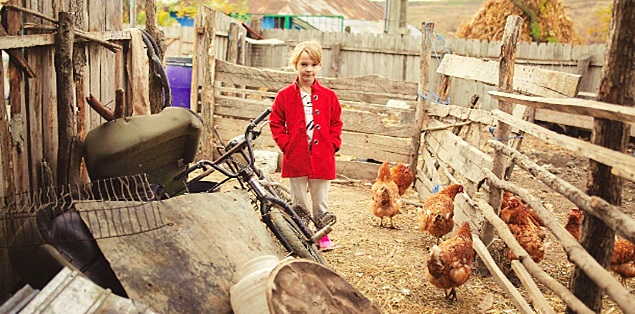1455

Questioning why 29% of Romanians do not redirect 3.5% of their income tax to associations or foundations, while 10% believe it is complicated, World Vision Romania's commissioned study shows.
Since 2020, the foundation has been collecting online forms from citizens who want to redirect this percentage of their tax, which otherwise goes entirely to the state. By completing the redirection forms for 3.5% of the income tax, citizens can contribute for free to supporting the Bread and Tomorrow program of World Vision Romania.
With this support, the organization will be able to provide, daily, a hot meal and two extra hours dedicated to homework for 1,500 children from rural areas in the next school year.
According to a study commissioned by the World Vision Romania foundation, the most commonly cited reasons by Romanians for not redirecting 3.5% of their income tax to an association or foundation are related to the fact that they do not understand the procedure or are skeptical about how their money will be used.
Specifically, 29% of respondents say they do not understand what they need to do to redirect, 17% do not trust that the money will reach the desired NGO, and 12% do not trust that the NGO will manage these funds efficiently. Another 10% say the procedure is too complicated.
How many children can World Vision Romania help through the 3.5% forms?
Through the Bread and Tomorrow program, the World Vision Romania foundation has provided, daily, a hot meal plus two hours of remedial lessons and homework support for 1,854 children from 2016 to the present. The beneficiaries are children from the most disadvantaged communities in rural areas in the preparatory, primary, and secondary school cycles. Only this school year, 6,534 meals and 228 remedial hours have been provided.
At the same time, the program has provided personal development workshops and psychological counseling sessions for children according to their needs, supplies, backpacks, and other educational materials, clothing, as well as summer camps or other excursions.
With one completed form, the organization can keep a child in school for two weeks. With two forms, the period is extended to one month. The calculation was made taking into account the current average gross salary.
How does the redistribution of 3.5% of the income tax work?
Any Romanian citizen with declared income pays income tax to the state. From this tax (which the state would take from you anyway), you can redirect 3.5% to a foundation/non-governmental organization (NGO) whose mission you believe in.
Say #ENOUGH and redirect 3.5% of your income tax for a hot meal and homework support in school.
World Vision Romania launches the #ENOUGH campaign inviting employees and all citizens with income equivalent to salaries to get involved in supporting the education of children in vulnerable environments.
To provide a hot meal and homework help to a child from a rural area in the World Vision Romania program, complete the online form here: https://worldvision.ro/formular-wv/
This school year, through the forms received from citizens, the foundation has managed to integrate over 150 children from primary and secondary school cycles, from rural communities, into an after-school program with a hot meal and remedial hours.
The need for a program like Bread and Tomorrow is even greater considering that two out of ten children in rural areas say their family provides them with enough food only occasionally or never. And one out of four primary school students, and over a third of adolescents, say no one helps them when they struggle with homework, according to the Child Well-being in Rural Areas report.
"Each form redirected from the income tax helps us continue our work for the children who need us most. School dropout rates are three times higher in rural areas compared to the national average, and PISA results are disastrous for children coming from vulnerable backgrounds.
And if we look at the broader context, the situation is even more serious: over 40% of children are functionally illiterate, and a similar percentage live in poverty and social exclusion risk. In the field, we've met children who, by the third grade, still don't know how to write letters or perform simple addition or subtraction operations. Material shortages exacerbated by the pandemic crisis have left traces that teachers and parents need to address.
Through the 'Bread and Tomorrow' Program, we provide not only a hot meal but also remedial hours and homework help, which are essential for children, especially those who have fallen behind or are at risk of early school leaving," said Mihaela Nabăr, executive director of World Vision Romania.
"We're at the beginning with the 'Bread and Tomorrow' program of the World Vision Romania Foundation. Although we've been involved in this project for only two months at our school, the results are already impressive. Out of the 54 primary-level children, nearly a quarter have improved their reading and writing skills.
I can say that almost all of them are now literate. And the hot meal provided at school also plays an important role. Children are more excited to stay in school, where they do their homework, read, and tackle more complex exercises, while parents are reassured knowing that they're provided with a hot meal and don't have to stay home to help with homework. In practice, homework has become an opportunity for more family reading together," said Nicoleta Dan, director of a school in the program.
Results of the Bread and Tomorrow program
World Vision Romania shows that through the "Bread and Tomorrow" Program, the following results have been achieved:
- Half of the schools report a presence of children of 99%, and a third of 100%;
- 74% appreciate that children's attendance at school has increased by more than 40%.





